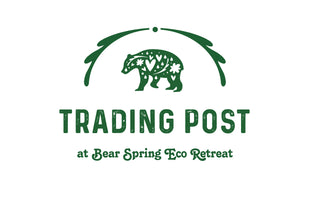It's 2030

It’s 2030
You wake up soothed by the sweet sounds of birds chirping outside. You pop some fresh raspberries in your mouth handpicked from a bush in a nearby park. Every city, town and municipality has converted public lawn space to edible food forests. It’s cozy in your private passive solar communal housing apartment. With a universal basic income you now have more free time to pursue intellectual development and helping others. In response to Maxime Bernier's less than visionary post.

Originally, I started writing a blog about the importance of kindness but then I got distracted by the 2021 United Nations Climate Change Conference (COP26). The climate crisis is a human social problem. Yes, it encompasses all sorts of other issues but climate change has really only become a problem because of how we have decided to structure our societies around endless growth on a finite planet. We are taught from a very young age that humans are dominant over nature and natural resources should be used for the benefit of humanity. Our worldview puts humanity first and believes human beings to be superior to everything else on the planet. We live lives that are separate from the natural world. Except that we aren’t separate. The earth can only tolerate so much. We are destroying the very things we need to survive….water, air and soil and along with them the very system that maintains all these vital things. And to make things worse, we have created a system where we have to compete with each other to obtain basic necessities. Charity has become an industry unto itself and falls woefully short of ending poverty.
We’re running out of time to fix this too. If we don’t make a radical societal shift and lower our consumption drastically by 2030 humanity may very well face extinction. So far, all the solutions offered are falling short. Promises of meeting targets by 2050 are simply too late. We can not make this transition without also abandoning our economic system. We are still trying to maintain the status quo. This is the very same thinking that got us into this problem to begin with.
But what if we were to change our world view? We could restructure our society to live in alignment with earth’s system? Luckily we have some good examples to guide us. Indigenous peoples around the world have been doing this for thousands of years. These peoples view the world as interconnected. It’sbased on respect, reciprocity, responsibility, and relationships. Other animals are considered kin. Thanks is given to both plants and animals when taken for food and medicine. And the interesting thing about this world view is that kindness is front and centre.
We can begin to shift our world view more easily when we start to be more kind to others. Not just kind to other fellow humans but all the plants and animals we encounter. Kindness also means generosity. In many indigenous cultures, the more generous you are and the more resources you give to others, the more respect you will acquire. Generosity also ensures connection to one another. Lack of connection is another one of our societal problems and a direct result of our world view.
I could suggest all sorts of other things we can do to make positive changes in our world but acts of kindness are the easiest to do. “Kindness has been proven to increase our happiness, reduce stress and improve emotional wellbeing. At the same time, spreading kindness offers us the opportunity to connect with others, building a stronger sense of community and unity with friends, family, neighbours and even strangers.” We really start to see the change happen when we make an effort to consider the well being of others and not just ourselves in every action we take. Kindness is also most effective when we don’t expect anything in return.
A good example is “paying it forward” at a local coffee shop or restaurant. Pay for an extra coffee or meal that can be given to someone in need later. You will make their day! Kindness is contagious too. Those happy feelings usually influence us to return the favour again.
When you shift your thinking to always being kind the world gets brighter! It builds connection. Without kindness we get too bogged down competing with and comparing ourselves to everyone else. We lose sight of the most important thing which is connecting to others. We can’t connect to others when we are angry or afraid. The easiest and simplest way to find common ground is to be kind. Share food, offer help, think about how your actions might affect others. We need to build a community of kindness to take action on climate change. We need to share more, eliminate our excess consumption and spend more time enjoying each other. Together we can eradicate loneliness, selfishness and hatred. Through kindness we can make the necessary societal shift required to ensure our planet’s temperature does not exceed the safe 1.5 degrees and do it by 2030. Humanity needs clean drinking water, healthy food, safe shelter, love and a sustainable climate for generations to come. Through a radical shift in thinking we can eliminate our excessive consumption and the accompanying inequality and still live lives of comfort and joy all within our planet’s limitations.
Isn’t this the future you want?
More reading:
https://www.readingkingdom.com/blog/in-denmark-empathy-is-taught-as-a-school-subject-that-kids-must-learn-from-a-very-young-age/
https://www.edutopia.org/blog/teaching-kindness-essential-reduce-bullying-lisa-currie
https://www.beaninspirer.com/change-the-world-with-kindness-because-kindness-is-all-the-world-needs-to-change/
https://teaching.usask.ca/curriculum/indigenous_voices/place-and-culture/introduction.php
https://www.ictinc.ca/blog/indigenous-peoples-worldviews-vs-western-worldviews
You wake up soothed by the sweet sounds of birds chirping outside. You pop some fresh raspberries in your mouth handpicked from a bush in a nearby park. Every city, town and municipality has converted public lawn space to edible food forests. It’s cozy in your private passive solar communal housing apartment. With a universal basic income you now have more free time to pursue intellectual development and helping others. In response to Maxime Bernier's less than visionary post.

Originally, I started writing a blog about the importance of kindness but then I got distracted by the 2021 United Nations Climate Change Conference (COP26). The climate crisis is a human social problem. Yes, it encompasses all sorts of other issues but climate change has really only become a problem because of how we have decided to structure our societies around endless growth on a finite planet. We are taught from a very young age that humans are dominant over nature and natural resources should be used for the benefit of humanity. Our worldview puts humanity first and believes human beings to be superior to everything else on the planet. We live lives that are separate from the natural world. Except that we aren’t separate. The earth can only tolerate so much. We are destroying the very things we need to survive….water, air and soil and along with them the very system that maintains all these vital things. And to make things worse, we have created a system where we have to compete with each other to obtain basic necessities. Charity has become an industry unto itself and falls woefully short of ending poverty.
We’re running out of time to fix this too. If we don’t make a radical societal shift and lower our consumption drastically by 2030 humanity may very well face extinction. So far, all the solutions offered are falling short. Promises of meeting targets by 2050 are simply too late. We can not make this transition without also abandoning our economic system. We are still trying to maintain the status quo. This is the very same thinking that got us into this problem to begin with.
But what if we were to change our world view? We could restructure our society to live in alignment with earth’s system? Luckily we have some good examples to guide us. Indigenous peoples around the world have been doing this for thousands of years. These peoples view the world as interconnected. It’sbased on respect, reciprocity, responsibility, and relationships. Other animals are considered kin. Thanks is given to both plants and animals when taken for food and medicine. And the interesting thing about this world view is that kindness is front and centre.
We can begin to shift our world view more easily when we start to be more kind to others. Not just kind to other fellow humans but all the plants and animals we encounter. Kindness also means generosity. In many indigenous cultures, the more generous you are and the more resources you give to others, the more respect you will acquire. Generosity also ensures connection to one another. Lack of connection is another one of our societal problems and a direct result of our world view.
I could suggest all sorts of other things we can do to make positive changes in our world but acts of kindness are the easiest to do. “Kindness has been proven to increase our happiness, reduce stress and improve emotional wellbeing. At the same time, spreading kindness offers us the opportunity to connect with others, building a stronger sense of community and unity with friends, family, neighbours and even strangers.” We really start to see the change happen when we make an effort to consider the well being of others and not just ourselves in every action we take. Kindness is also most effective when we don’t expect anything in return.
A good example is “paying it forward” at a local coffee shop or restaurant. Pay for an extra coffee or meal that can be given to someone in need later. You will make their day! Kindness is contagious too. Those happy feelings usually influence us to return the favour again.
When you shift your thinking to always being kind the world gets brighter! It builds connection. Without kindness we get too bogged down competing with and comparing ourselves to everyone else. We lose sight of the most important thing which is connecting to others. We can’t connect to others when we are angry or afraid. The easiest and simplest way to find common ground is to be kind. Share food, offer help, think about how your actions might affect others. We need to build a community of kindness to take action on climate change. We need to share more, eliminate our excess consumption and spend more time enjoying each other. Together we can eradicate loneliness, selfishness and hatred. Through kindness we can make the necessary societal shift required to ensure our planet’s temperature does not exceed the safe 1.5 degrees and do it by 2030. Humanity needs clean drinking water, healthy food, safe shelter, love and a sustainable climate for generations to come. Through a radical shift in thinking we can eliminate our excessive consumption and the accompanying inequality and still live lives of comfort and joy all within our planet’s limitations.
Isn’t this the future you want?
More reading:
https://www.readingkingdom.com/blog/in-denmark-empathy-is-taught-as-a-school-subject-that-kids-must-learn-from-a-very-young-age/
https://www.edutopia.org/blog/teaching-kindness-essential-reduce-bullying-lisa-currie
https://www.beaninspirer.com/change-the-world-with-kindness-because-kindness-is-all-the-world-needs-to-change/
https://teaching.usask.ca/curriculum/indigenous_voices/place-and-culture/introduction.php
https://www.ictinc.ca/blog/indigenous-peoples-worldviews-vs-western-worldviews


Leave a comment